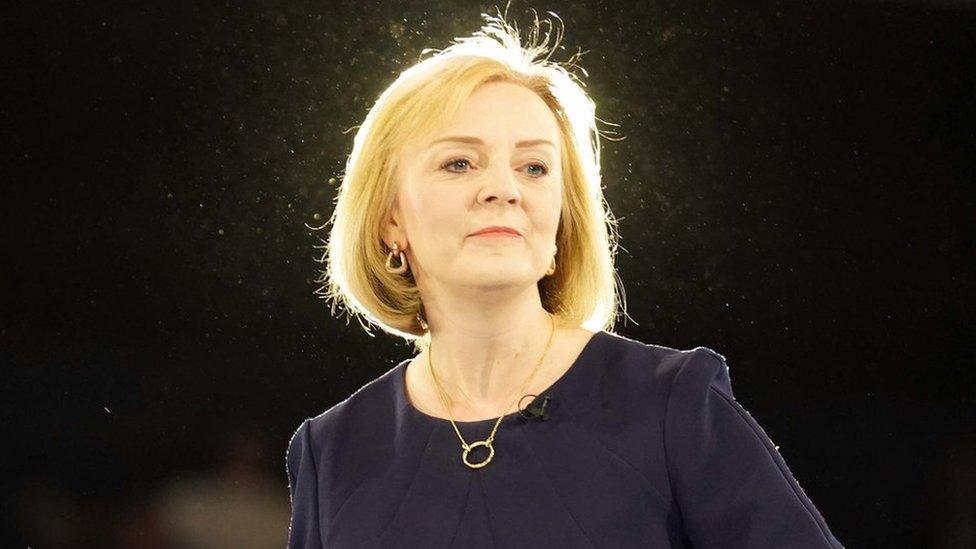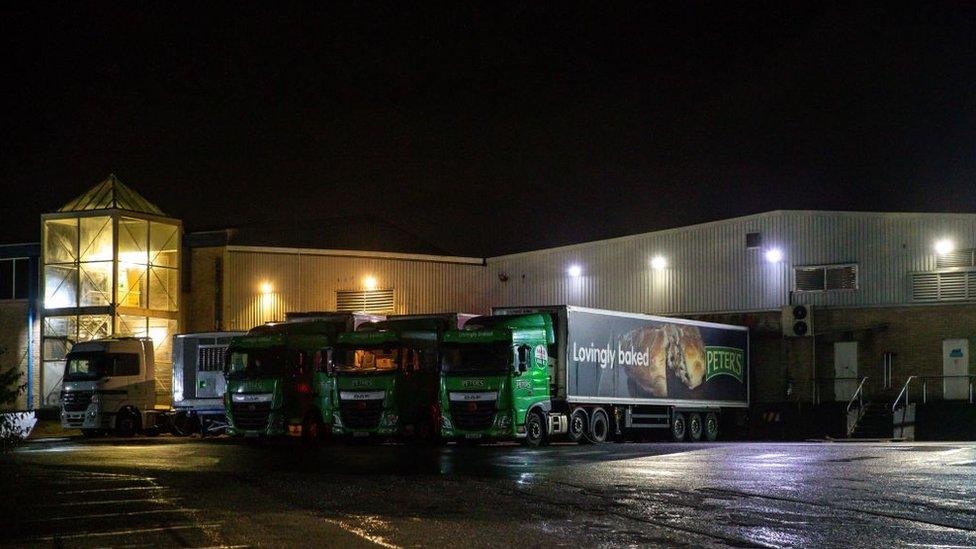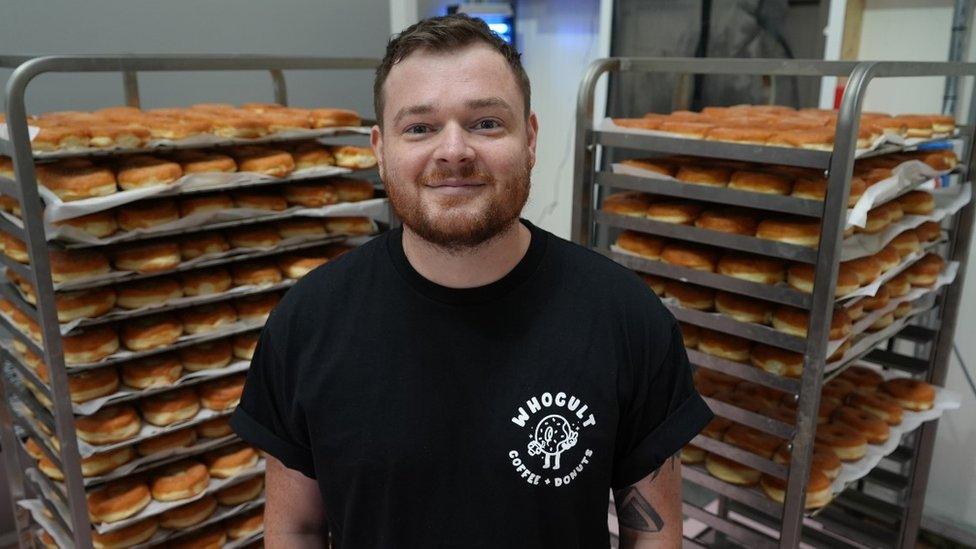Energy prices: 'Difficult winter' ahead despite support - charity
- Published

Liz Truss has announced she will limit energy bill rises for all households until the next election
People in Wales still face a "difficult winter" despite Liz Truss's announcement the government will cap average household energy bills at £2,500 a year, a charity has warned.
The support will last for two years, starting in October.
"The announcement will provide some reassurance... However, this alone will not solve the cost of living crisis," Citizens Advice Cymru said.
It added low income and vulnerable households would still struggle.
The prime minister's two-year plan supersedes the existing energy price cap, and is in addition to the announced £400 energy bills discount for all households.
Buying sleeping bags, tents and candles
Jacqui Cadogan, from Caldicot, Monmouthshire, was among those who had been calling for an energy price cap.
"People are struggling and we're hearing about all these big companies that are making billions of pounds in profit," she said prior to the PM's announcement.
She had started turning plugs off and had bought sleeping bags, a tent and tea lights for winter, adding: "I'm just preparing. Worst-case scenario. I just want to be ready for anything.
Businesses are also getting a support package, but only for six months.
'A question of survival'
Owners have been calling for urgent help for Welsh businesses, warning they may not survive the winter.
Bridgend-based doughnut bakery WhoCult said its electricity costs had trebled in recent months.
The Federation of Small Businesses (FSB) said many businesses faced a "cliff edge" as energy deals ended.
Peter's Pies Managing Director Mike Grimwood was among those who had called for a unit cap price for businesses such as his, based in Bedwas, Caerphilly county.
He called the situation "pretty stark" prior to the announcement, adding: "There's only one thing we can do - emergency price increases are being warned to our customers."
Other costs, including ingredients, have risen by 33%, he said.
"We are talking to all our customers and saying this a question of business survival."

Peter's Pies delivers baked products to consumers around Wales and further afield
Scott Magill, the owner and founder of WhoCult Coffee and Donuts in Bridgend, said "urgent help" was needed. He had seen energy costs treble recently to £3,000 a month, just as the company expanded with a new shop in Barry, Vale of Glamorgan.
"I think a lot of businesses won't be able survive this winter," Mr Magill said.
"We have tightened our belt in many departments, but the cost of ingredients has gone up, the cost of electric has gone up, and something has got to give."

Mr Magill's business thrived through the Covid pandemic
The business opened just before the Covid-19 pandemic, developing from a small doughnut outlet to a larger cafe and its own bakery.
Mr Magill also runs a T-shirt printing company on the same site.
While it has been a success and takings are up, the rising cost of ingredients and energy means it has become harder to make a profit.
"We have only recently noticed the rise in the energy cost, I would say in the last three to five months. That's especially since having this bakery, this bakery is only one year old," Mr Magill said.
"Unfortunately the cost of the rising electric, apart from turning off the odd plug, there is not much more we can do. A lot of equipment needs to stay on all day, every day, unfortunately. With us now making more doughnuts with a second store, they are in use more than normal."

There is concern over how small businesses will survive the winter without help
Red Flag Alert, which monitors the financial health of firms, said tens of thousands of businesses risked going under because of rising costs.
- Published2 September 2022

